Last Updated: 5 months ago
Why do cats lick and then turn right around and bite you?
Your cat will lick you, which is perceived as being affected, and then turn right around and give your skin a healthy chomp.
We decided to share the most common reasons on why do cats lick then bite.
Continue reading to learn more.
5 Reasons Why Do Cats Lick Then Bite
#1 Individual Personalities
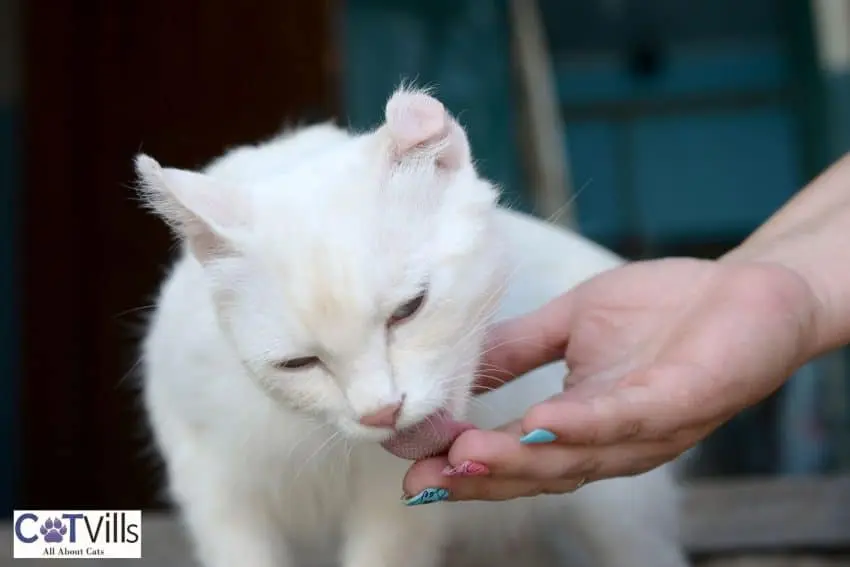
Not all cat personalities are the same. If you are a cat owner, this comes as no surprise.
We currently own a cat who is about 15 years old. We adopted her when she was ten from a no-kill shelter.
She was born in that shelter, adopted for four years, and then returned to it, where she sat for six more years until we happened along.
She is the perfect fit for our family, and the only time we have been perplexed by her is when our darling little cat licks my nose.
I have had to consider why my cat licks my nose and then gives it a little nibble or why she is prone to giving the bite lick combo to my hand.
She gives gentle bites—not enough force to break the skin but just enough to have left us wondering what in the world she was thinking.
After having her for so long, we concluded that it is just an endearing trait our beloved furry friend possesses. It is a part of her unique personality.
It’s essential to know your cat and how they choose to express themselves so that you can know what they feel and when to give them space or change the environment.
#2 Play-Related Aggression
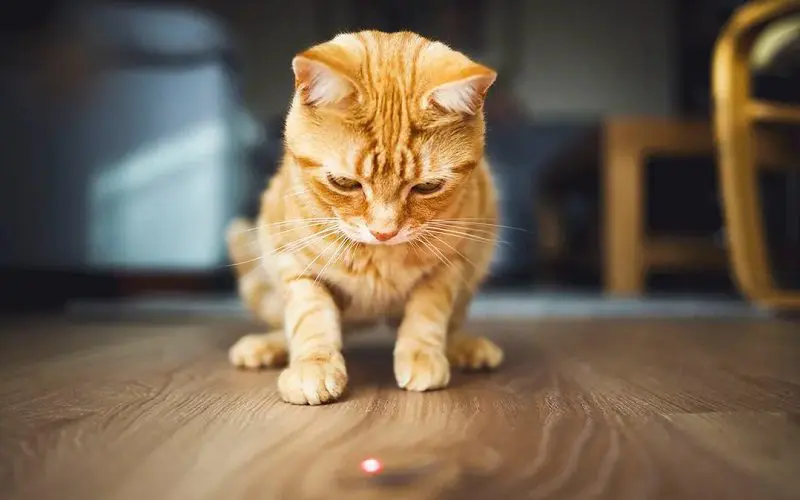
Cats can sometimes get overexcited while they are playing. They can also require a little time to settle down after finishing. This is more applicable to kittens but can be valid for adult cats.
It should come as no surprise, then, that a cat may lick and then bite you in either one of those situations. These should not be considered aggressive behaviors but rather standard behavior patterns.
Being overstimulated can trigger their emotions and cat instincts, resulting in play-related aggression that may lead to a lick, sometimes immediately followed by a bite.
Often, if you allow them time to process that playtime is over, they will calm down on their own, eventually going back to the lazy cat life, which usually includes the requisite nap time (oh, to be a cat).
#3 Stress
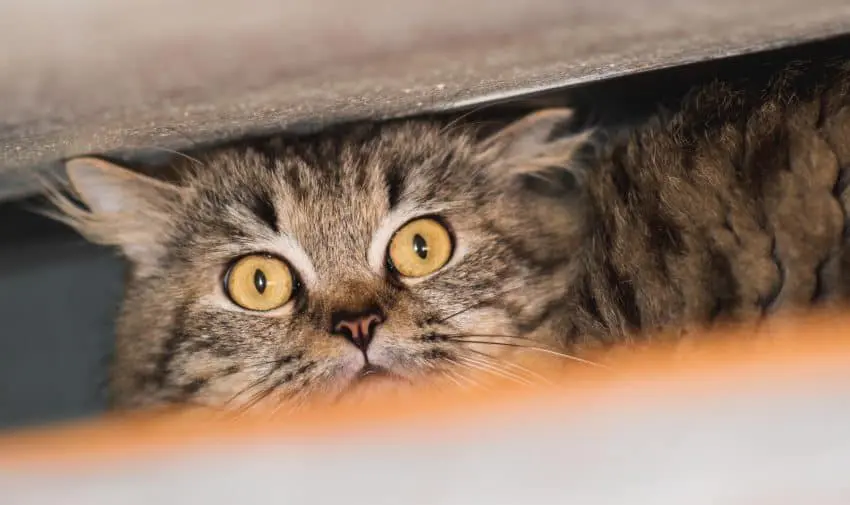
It is no secret that cats are creatures of habit, and they experience stress when there is change.
When we first adopted our cat, she was so stressed out with her new place, even though we had a calming home environment.
She stayed under the bed for two days unless she hurriedly came out to utilize her food dish or the litter box. We did find one exception to be accurate, and that was if we peeked under the bed.
She could not resist darting out to see why we looked at her if we peeked under the bed, which was hilarious.
We gave her all of the time she needed to adjust, but it was not uncommon at the beginning of our relationship to lick my hand and then give it a little bit when I would reach up to try and pet her.
Giving her the time to process her new surroundings (and owners) allowed her to build her confidence and start coming out to see us (she follows us from room to room now).
She also stopped biting us when we tried to pet her. These days, if we stop petting her and she’s in the mood, she’ll lightly paw our hands or arms to tell us to please continue.”
#4 “We Time” is Over

A cat appreciates its time with its human, a lick followed by a bite may also signal that it is time to stop interacting for the moment.
While your cat likely appreciates being scratched or stroked, too much love time can leave them feeling a bit disconcerted.
Fortunately, your cat will find a way to communicate this with you by getting up and moving or giving you a lick and then a bite.
This can mean they tell their pet owners that they want the petting done.
How to tell when your cat wants to be alone?
- Your cat removes itself from your area;
- A cat signals you in other ways, such as by twitching her tail;
- The cat turns her ears back;
- Your cat decides it is time to groom.
#5 Grooming
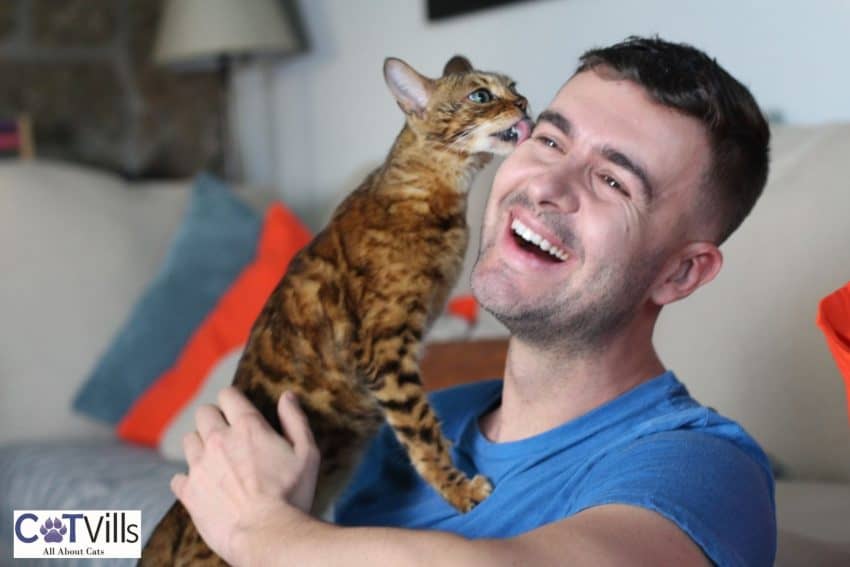
Cats are notorious groomers, which primarily consist of licking themselves or others. It can also sometimes include a nip of the teeth here and there.
My cat licks my hair, which in and of itself is funny, but if I take that as a sign of affection and try to pet her, she will give me a little bite to tell me she’s not interested in receiving a return sentiment.
I have to get up and move to make her stop, which does not bother her. Nine times out of 10, she will revert to the grooming behavior of licking herself.
This is not uncommon behavior; in fact, studies have been done on cat grooming, with one of them using the term’ groom biting to describe these little licks and cat bites.
3 Things to Do if the Bite Becomes Aggressive
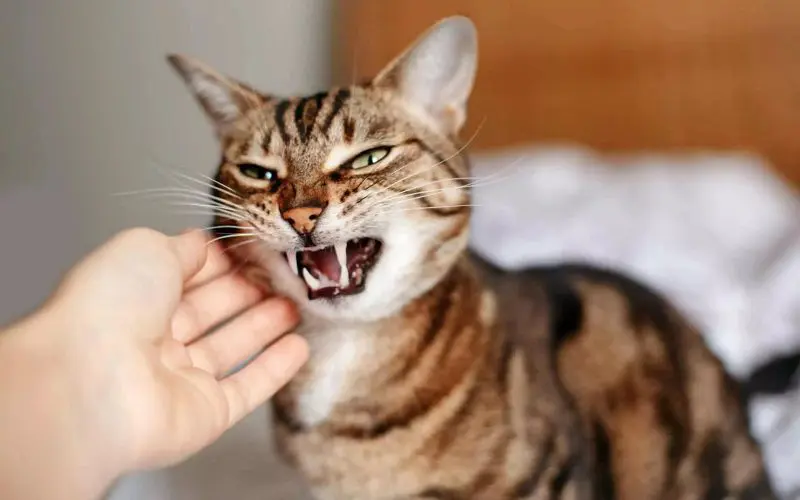
If, however, the aggression does not end quickly, it may be time to reassess how your cat is feeling. You should:
- Give your cat space.
- Change the environment.
- Reduce any stressors such as loud music or too many toys.
Veterinarian Rachel Barrack said,” “The most common reason a cat bites you is that they aren’t enjoying the current interaction. Biting is their way of payback when they feel threatened or annoyed”.
Observing when your cat is happy with you and when they are prone to biting will go a long way in fixing the behaviors. Body language is essential.
If your cat breaks the skin while biting, you should immediately tend to the site. Veterinarian and senior research scientist at Purina, Deborah Greco, agrees.
Greco notes, “Cat bites are extremely dangerous due to the bacteria present in a cat’s mouth! If your cat bites you and breaks the skin, you must clean the bite immediately with warm soapy water.”
3 Tips to Avoid Overstimulating Your Cat
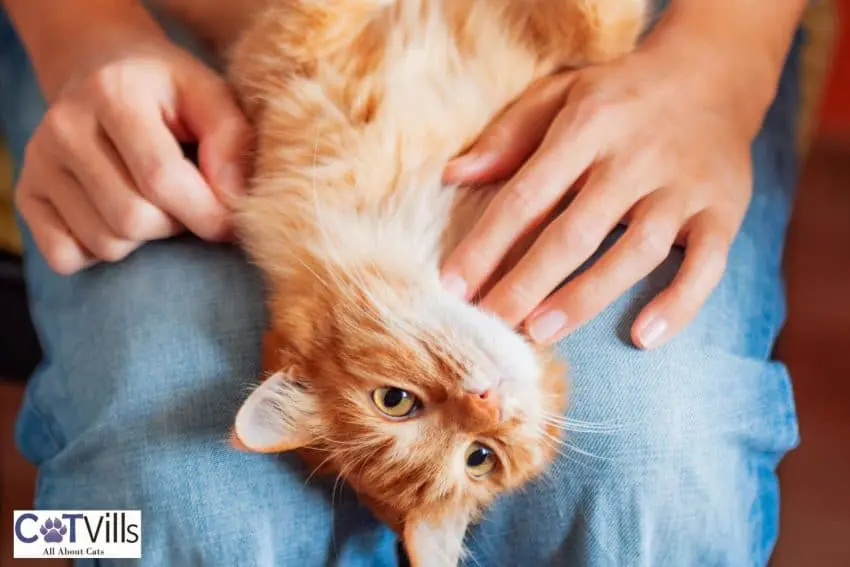
Overstimulation refers to a cat’s normal response to being petted or handled in areas or ways the cat finds uncomfortable or has gone on for too long.
- Avoid petting your cat in areas she does not enjoy being touched. Have a look at their body language and any sounds they make.
- Do not pet your cat for too long. Accept your pet’s boundaries.
- Ensure you are not forcing your cat into situations they may not like.
FAQs
Will cats lick and then bite you during playtime?
Absolutely! When cats are excited, such as during playtime, they may run around the house quickly, lick or bite their owners.
Does the behavior of a cat change when they are under stress?
Of course! Stress requires coping mechanisms. Licking or biting may be ways your cat signals to you that they are experiencing duress. It may also be their way of dealing with it.
When a cat requires alone time, will it let you know?
Little nips may be petting-induced aggression (not to be confused with aggressive behavior) or communication for cats to let their owners know they want to be left alone.
Conclusion
Figuring out why your cat licks you and then bites you can be done. Evaluate the circumstances when and where they take place.
There is no need to stress the perception of mixed signals you might get if your cat licks you and then bites you. It is likely just some form of communication they are passing along to you.
Once you figure out what that is, your worries will turn to reassurances that you now understand and can fully appease your cat.
As the owners of royalty (or so our felines seem to think they are endearing), isn’t that what we are expected to do?
Why do cats lick then bite? Let us know your opinion below!
Resources:
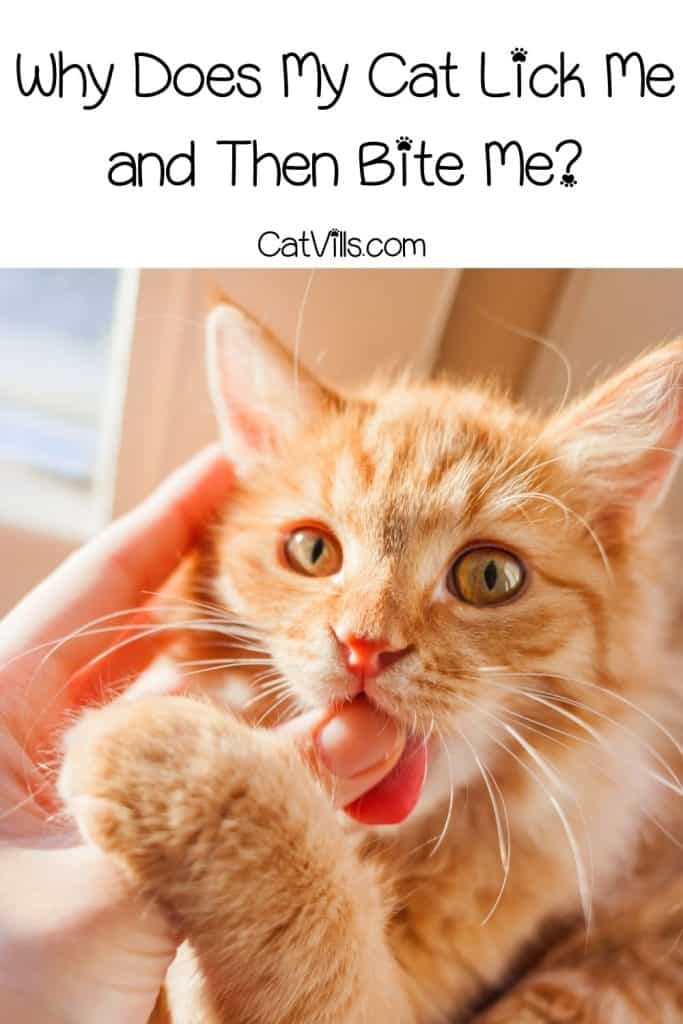

Dr. Linda Simon MVB MRCVS is a locum veterinary surgeon who has worked in London for the past 8 years. She graduated top of her class in small animal medicine from UCD, Dublin. She is currently a member of the Royal College of Veterinary Surgeons. Linda is the resident vet for Woman magazine and a frequent contributor to People’s Friend Magazine, the Dogzone website, Vet Help Direct and Wag! Linda also writes content for the CVS veterinary group, Vetwriter and a number of other establishments.
